Delayed diagnosis - a mother's journey
Recurring coughs and colds are often a feature of early childhood that most parents rightly dismiss as an unpleasant rite of passage. Some might even go as far as describing these illnesses as necessary for growing immune systems.
However, for a small number of parents, this repeated cycle of common childhood illnesses can point to Hunter syndrome (also known as mucopolysaccharidosis type II; MPS II), a rare genetic disease that affects one in every 162,000 new born children, mostly boys.
Because of the way it first presents, Hunter syndrome can be difficult for doctors to diagnose. Symptoms differ in each child and frequently overlap with common childhood illnesses. This can make the journey to a diagnosis a long one. Speaking of her experience with early symptoms, Toni Ann, who has two sons with the disease, says:
Aiden was born a beautiful, healthy baby boy, but he had frequent ear infections that we were told were typical. He had two sets of tubes put in his ears, and then his adenoids removed when he was a year and a half old. He got colds a lot.
- Toni Ann, mother of two sons with Hunter syndrome
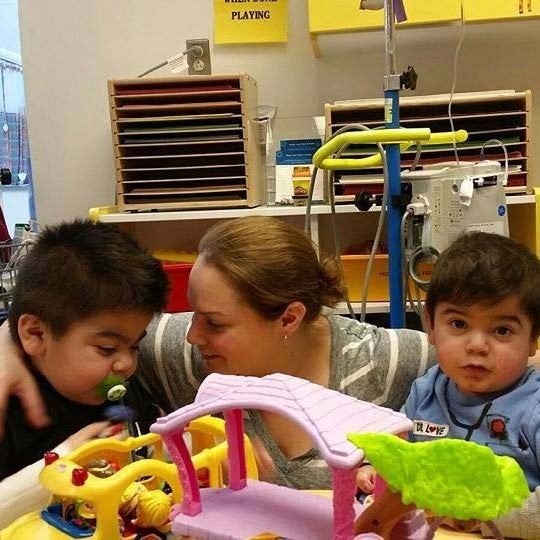
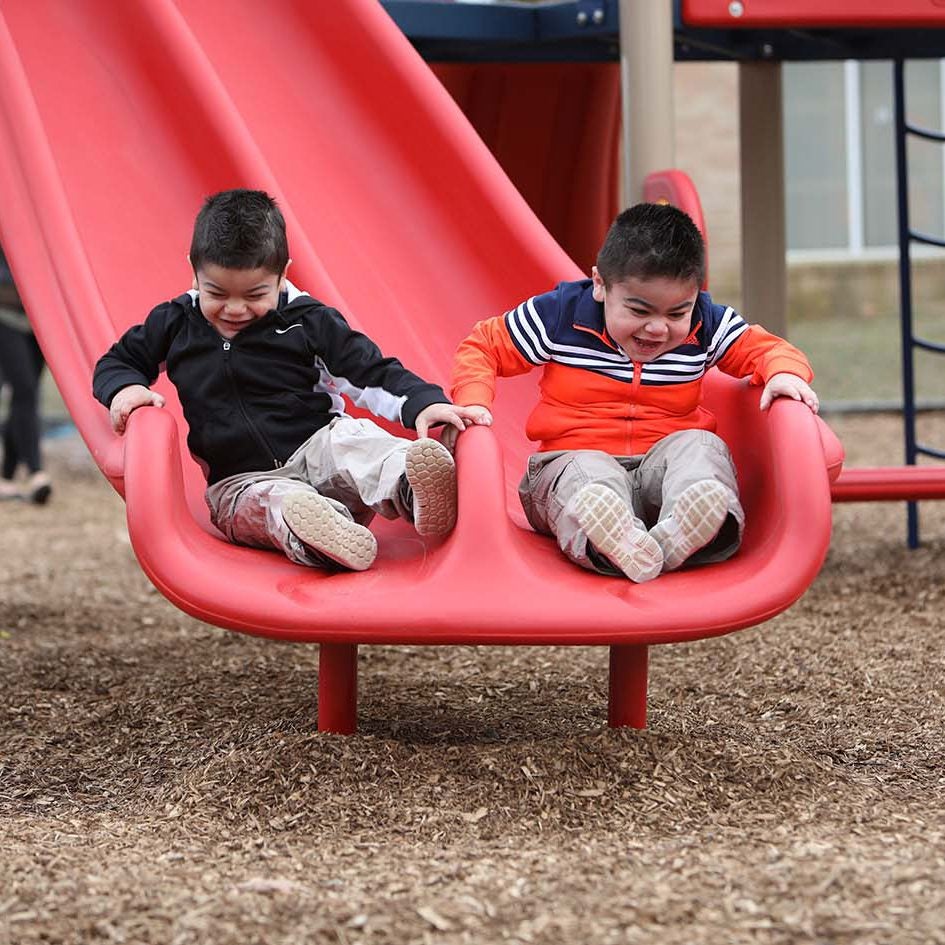
-
Read more about Toni Ann's experience as a mother of two boys with Hunter syndrome here
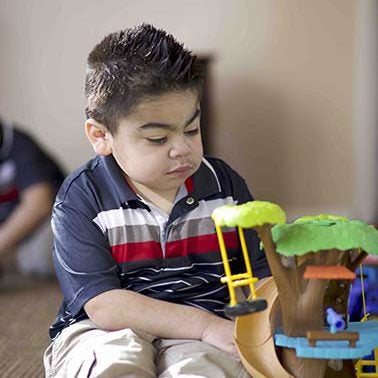
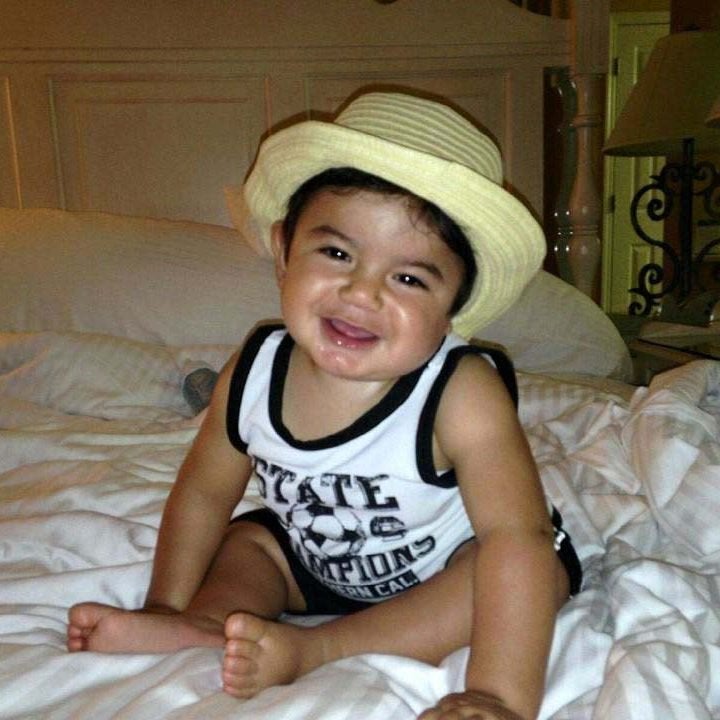
As a genetic disease, Hunter syndrome can run in families. This means that Aiden’s brother, AJ, had a 50% chance of being born with Hunter syndrome, and it turns out that he did have it. Their mother describes further:
With AJ, I didn’t notice any symptoms at all. But when Aiden was diagnosed the geneticist pointed out some things about AJ. That’s when I noticed all of these things. AJ was 18 months and not walking yet. He also had speech delay and, just like his brother, had ear infections as a baby so he had tubes put in and his adenoids removed. When we got the diagnosis of Hunter syndrome, my reaction was definitely denial, it was anger – a lot of emotions, including shock. The worst part is that it hits you all at once. It was rough. I had to catch my breath.
- Toni Ann, mother of two sons with Hunter syndrome
Unfortunately, Hunter syndrome is a progressive disease with potentially life-changing effects for both the child and the family. Many of the symptoms of Hunter syndrome cannot be reversed once they have reached a certain point.
These symptoms alone would not normally be ‘red flags’ that could indicate Hunter syndrome. But sometimes when ear, nose and throat conditions occur in combination with other symptoms, such as a hernia, or problems with movement and developmental delays, then you might suspect something needs to be investigated further. Some boys start growing at a normal rate but begin to fall behind in height, they have big bellies and their hands and fingers might appear bent, or ‘clawed’.
When he was about 2 years old, I noticed Aiden had a speech delay, but we thought he would catch up. He had occupational therapy, physiotherapy and speech therapy for a year. Then his paediatrician suggested we see a geneticist because of Aiden’s facial features (broad nose, large head); he wanted to have him evaluated.
- Toni Ann, mother of two sons with Hunter syndrome
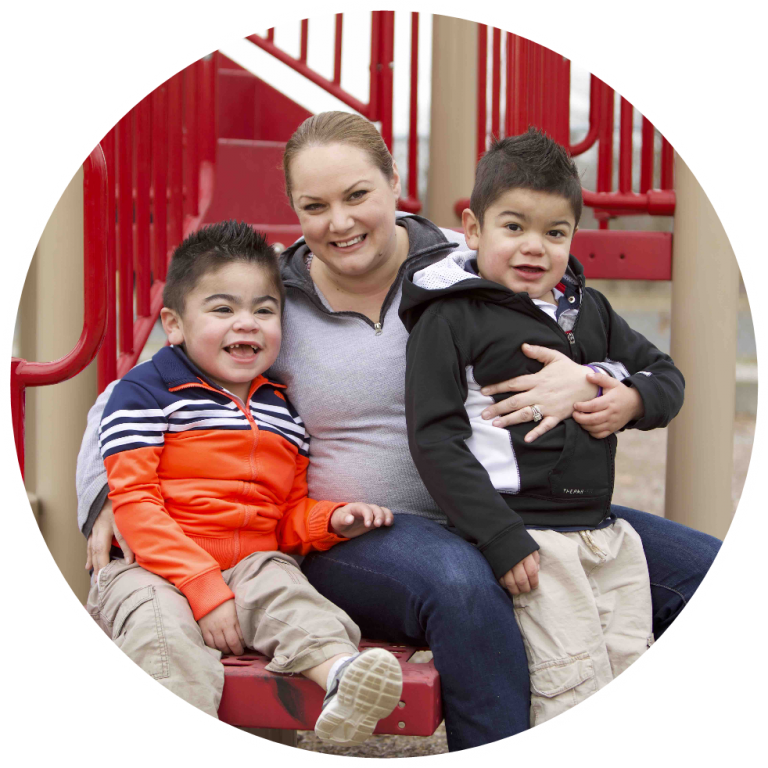
-
Early awareness of the disease is key to avoiding a delayed diagnosis and the impact this may have on the child and his family.

Speaking of the impact that Hunter syndrome has had on her sons who both have the disease, Brittany says:
My boys have severe MPS II, and they’re cognitively affected by the disease. Hunter has more storage in his face, and in his hands. He doesn’t understand things like a normal child would. He is more aggressive, a very big talker, and a huge social butterfly. Kingston doesn’t talk very often. He’s 6 years old now and only has about 60 words. He doesn’t understand things: he’s more of an eye contact boy. He has some of the MPS II facial features, and heart problems. They’re both completely dependent on me. Looking up MPS II, I found other children on the web who looked like my kids. Seeing these other kids, who aren’t diagnosed until 4 or 5, made me very thankful that the doctor caught it just by looking at the very strong, pronounced features in my 1-year-old at that time. I was very grateful that we caught it early, because it could have been way worse.
- Brittany, mother of 3 sons affected by Hunter syndrome
If you recognise the combination of frequent illnesses in your child and repeat visits to the paediatrician, talk to your doctor.
-
Learn more about the signs and symptoms of Hunter syndrome
